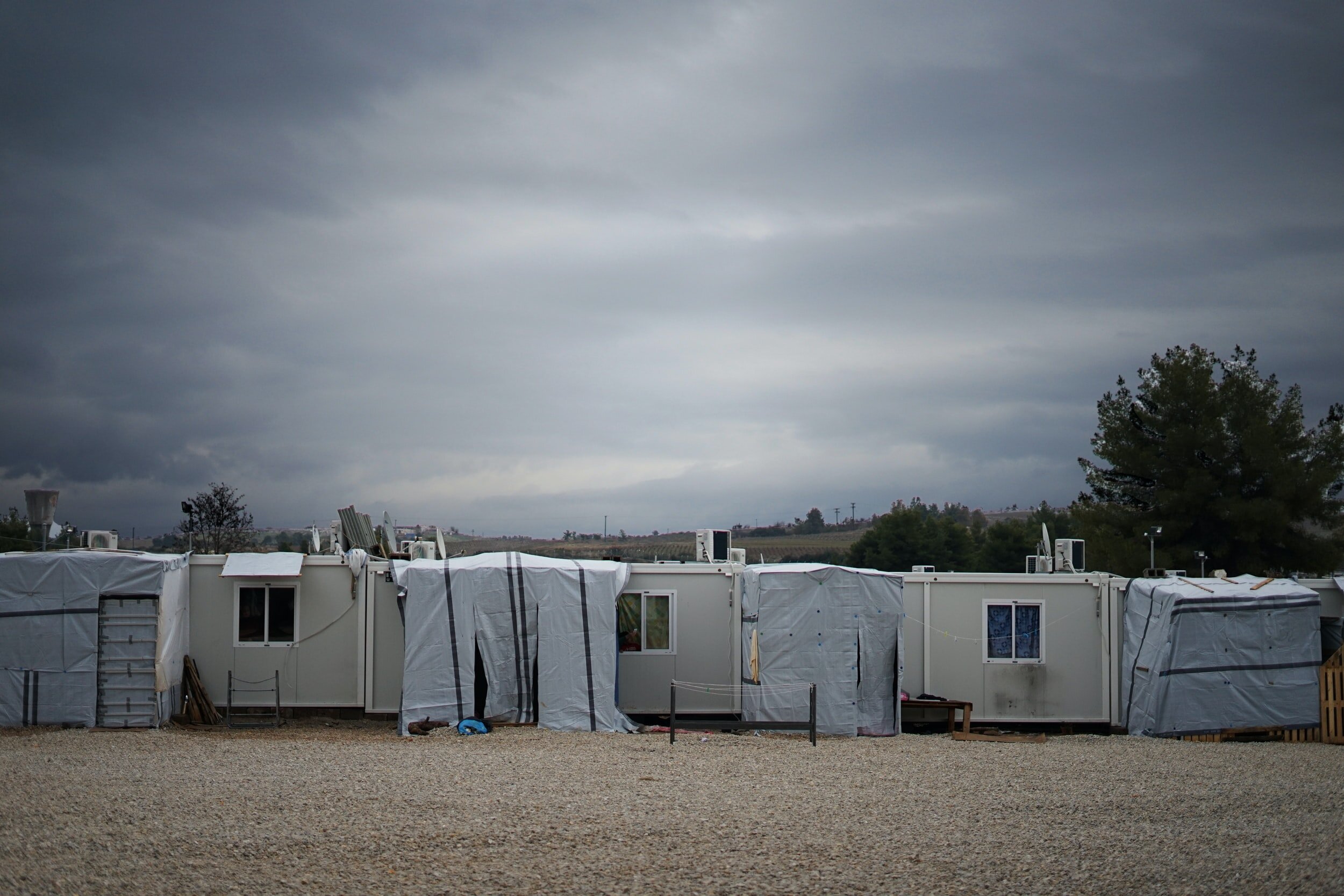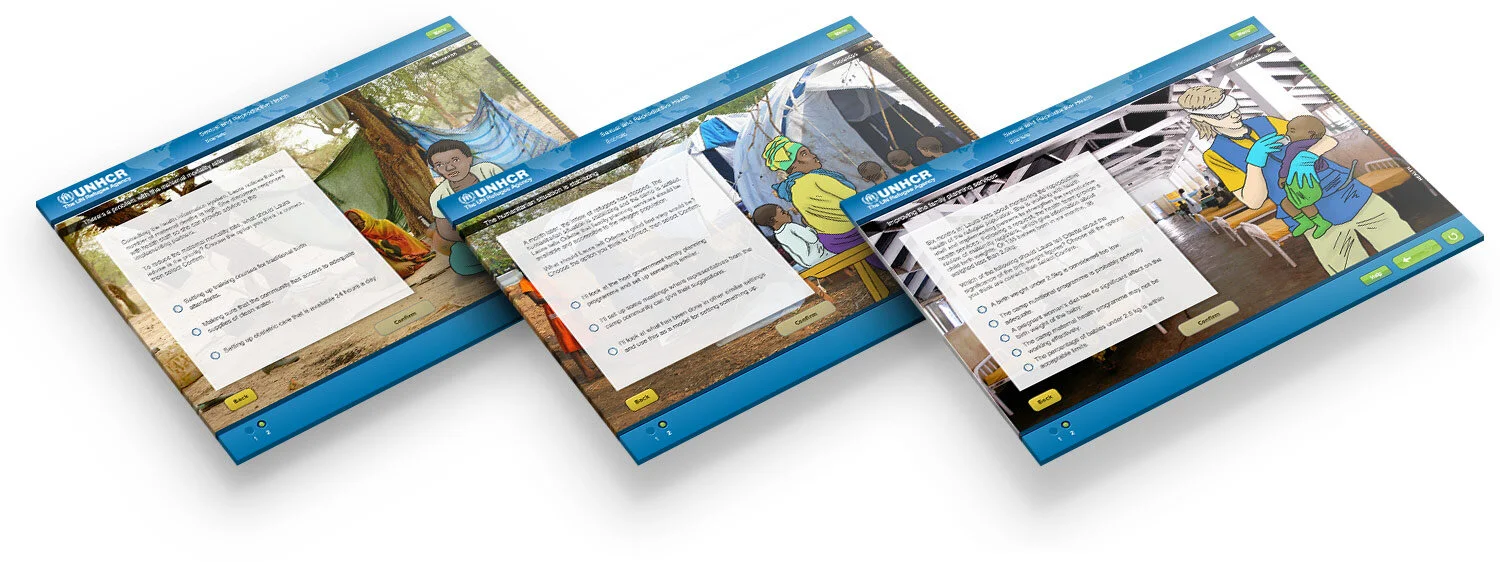
UNHCR
Protecting public health in the toughest settings with people-focussed learning
The United Nations High Commission for Refugees (UNHCR) needs its field staff to have a working knowledge of many complex subjects beyond their core expertise, so they can make informed decisions and work effectively with other NGOs and specialists. Our interactive learning helps their staff understand core public health principles and apply them appropriately on the ground.
The brief
UNHCR field staff need a working knowledge of public health issues including nutrition, communicable diseases, infection control, reproductive health, sanitation and hygiene.
These staff have little time to learn and can often feel discouraged by the volume and austerity of the guidance they must read. Even when they can find time to read it, the dry content can be difficult to remember and apply.
The UNHCR was looking for a way to get the key points across quickly yet thoroughly, and in a memorable way that would empower staff to make critical decisions effectively.
Key points
Instructional design
Scenario-based learning
Custom illustration
Our approach
Our instructional designers worked with UNHCR subject experts to transform the dense operational guidance on public health principles and practice into a series of concise, easy-to-read field guides.
We also created a series of interactive operational scenarios with practical problems for the learner to solve. These scenarios required learners to find, read and apply the relevant field guide content.

Using library photography to illustrate such specific scenarios wasn’t an option, and staging photos in refugee camps would have been inappropriate and impractical on many levels.
But to drive learner engagement, and keep the human impact in focus, it was essential that the practical tasks were realistically illustrated.
So we combined photographic backgrounds with custom illustration. This helped achieve the necessary realism, and lets us assemble a cast of characters who respected the diversity of the UNHCR’s work.
This also had the advantage of allowing complete creative control. The UNHCR team could sign off images at concept / sketch stage, and details of illustrations could be easily amended if necessary, to ensure accuracy and credibility.
These assets also provided UNHCR (who retain all rights) with a resource that’s been able to be repurposed for further training and communication projects.
Naturally, all the media used in the course were optimised for use over poor internet connections.
The results
Because the learner applies the technical content to actively solve problems, the modules we created for UNHCR have improved knowledge retention and enabled its effective transfer into practice.
The public health course has successfully helped programme, field and community officers to:
interpret basic public health indicators
contribute as members of multifunctional teams in planning, identifying gaps and highlighting risks
alert external experts when needed
achieve better coordination among partners.



